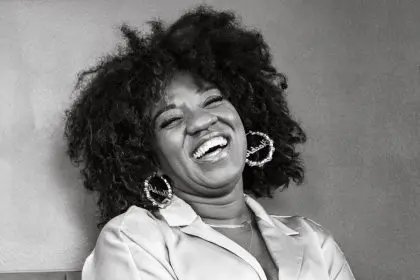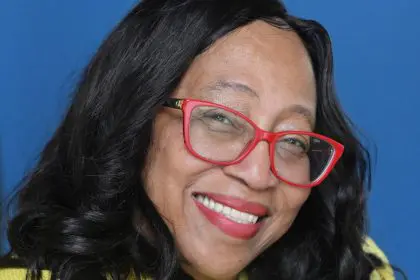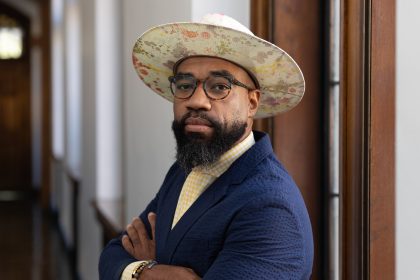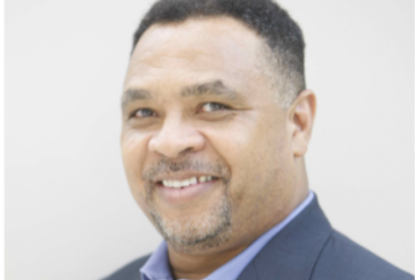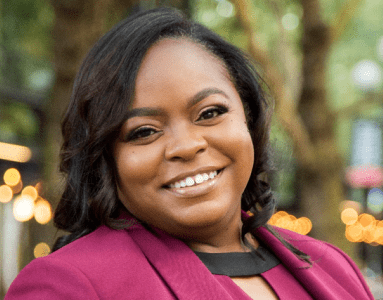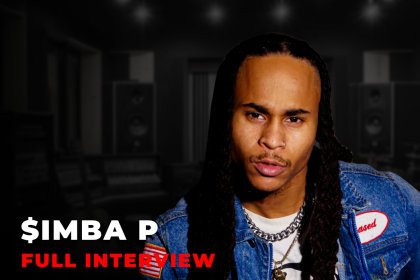Dorri McWhorter is the president and CEO of the YMCA Metropolitan Chicago. Through her time at the nonprofit, she’s been committed to creating a marketplace for engaging civic, community, and community partners. McWhorter believes in being your most authentic self in the workplace and leads with joy so the people around her can do their jobs to the best of their ability.
What is the mission of the YMCA?
The YMCA has been around for 165 years; this is our 165th anniversary. Our mission is focused on strengthening communities by connecting our people to their purpose, potential, and each other. Being around for so long, we have such a great legacy, but what the Y is known for is being that community hub, and we’re leaning into that. We’re here to serve everybody, all communities, [how] they need to be served.
What do future CEOs need to understand about having a legacy brand?
[Mainly] being a [nonprofit CEO], I hear people say, “My goal is to work ourselves out of a mission.” Your goal [is] to continue to figure out what [we] need to be doing and evolve to do that [as a leader]. There’s only one way [you’ve been] here for 165 years[: that] continued evolution. The YMCA, particularly in Chicago, has been at the forefront of evolving to meet people where they are. Back in the 1920s, Carter G. Woodson was there, and he founded Black History Month, and Negro History Week was [launched] at the YMCA. We just had the [recently passed] Chicago Marathon, which was [established] at our LaSalle Street YMCA with one of our fitness directors there. We have so much legacy, [so as leaders], regardless of profit or nonprofit, we always need to [consider] what’s relevant. How do we continue to evolve and meet the needs of society, wherever that may be at the time?
What would you say to other young sisters who have yet to don that CEO title but are working toward that goal?
The first thing [is] to be authentic. I know [we] get advice from others about how we should show up and what that looks like, but my experience has shown that [it’s really hard] if you can’t be true to yourself. I have a lot of superpowers, and acting isn’t one of them. I tried to just lead from an authentic place. What you see is what you get, and it’s hard enough to do the work we have to do without trying to be someone we’re not. The other piece for me is being curious and staying curious. The way we continue to evolve in our access to new solutions and new opportunities is to be [interested]. Ask questions and learn from everybody; [everybody] I meet is an opportunity to learn something new, and [that’s] what keeps me relevant. That’s what keeps my mind thinking and keeps me moving. Third, just to be kind to people. [As] a leader, particularly on a trajectory, you don’t know who you [will] meet along the way. [People] will not forget if you’re not talking to them, so I [treat] people with respect and dignity all the time. Be patient with people. People are gonna get on your nerves. That’s what they do. But at the same time, [it’s important] to always maintain a high level of empathy and understand where people are coming from as they encounter you throughout their lives.
What leadership style do people need to understand that is effective when you’re a CEO?
I [wonder if] there’s one style. [What’s] important is that people are authentic and consistent with how they show up so that [they] know what to get from what [they will] get from you. I hope that that’s something that’s filled with kindness, but it’s important to be true to who you are and make sure that people know what they can expect. [They know how to engage with you, how] you’re going to get the best out of them, and they’re going to get the best out of you. [It is essential] to have that consistency and authenticity [to] know what’s worse. We’ve experienced folks like that in our life that we don’t know what [we’ll] get that day from people [who] are hard to work with [and] navigate through. My personal style is that I choose to lead with joy. I want people to have a good experience with me, and [we] can create so much positivity together. It [depends] on who you are and how you show up in the world.
How have you found a successful strategy to work with your board?
[The] most effective thing to work with a board or any [stakeholder] group must be clear. When you’re clear about what you need and [where] you’re going, [you] can support those [trying] to [help] you to get where you’re going. When working with a board, I think you need to be the leader of the organization and engage with the board in ways to make sure that they understand where you’re at, what you’re trying to accomplish, and how they can explicitly support you in [achieving] that, because a lot of the ambiguity happens when people aren’t clear about what their roles are. They start dipping into places that may not be helpful to you or are just playing roles that [you may not] need them to play. Clarity helps a lot. Clarity helps solve so many problems. [If] you’re clear about where you’re going, but [clear] and able to articulate to people what you need from them, and how they help you, [it’d be] so important in that relationship.
How important are data gathering and analysis in how you make decisions?
We talk about this [mainly] as we are in a world now where AI is on the horizon, and people are focusing on it. We [must] remember that it’s a source, a point, and a piece of information, but it still takes us to discern, assess, analyze and apply that information. All of that becomes [how] human beings continue to conceptualize things and make those things happen. It’s [essential] to have data, it’s [vital] to have information, but even more important [to] truly discern and understand what that information means.
What’s playing out in the workplace that you see as a leader where empathy and emotional intelligence are on the horizon?
One positive outcome of COVID is [that we have] become more empathetic as leaders. One, we saw that our people were tremendously impacted by their family conditions, whether it was the loss of loved ones because of COVID or the height of COVID. Or we saw that people needed to be able to show up differently with whatever their family situations were. [I hope] one of the outcomes of COVID is that we become more empathetic, and [that] is manifesting in the fact that we are seeing more workforces or more workplaces address hybrid workplaces. That is an emotional response to people wanting [and] needing something different [to] be the most successful. [They] can be at work in that environment, whether it’s reducing their commute, so their stress levels are more or less, that they can be in an environment where they can take care of home situations. Acknowledging the humanity of people every day is [a] great demonstration of how I believe the workforce or the workplace is becoming a little more empathetic.
What would you want people to say about your legacy at the YMCA?
I want everyone that I have been able to encounter through the work that we’ve done, as well as the employees that have done that work, to know that I’ve done this work because I want everyone to feel valued and loved, and if I can do that through how we do the work and the what we do in the work, I feel like that I have done my job.

